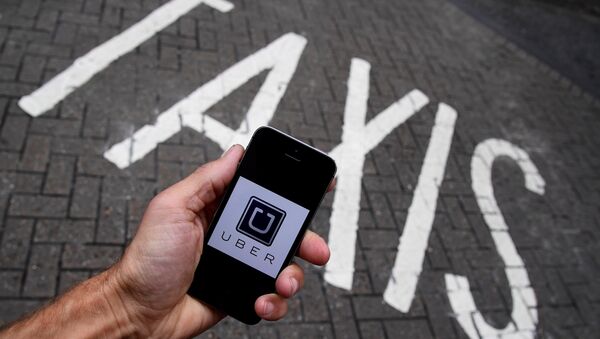New Delhi (Sputnik): IIT Kanpur and VTOL Aviation India Pvt Ltd recently signed an INR 15 Crore ($2.2 million) contract for the development of a prototype for a self-piloted vertical takeoff and landing (VTOL) craft. The institute has said it would take five years' time to complete the prototype.
"We will establish a proof of concept and identify the key technology areas. There will be over 100 students working on this," Ajoy Ghosh, aerospace engineering and the flight lab head of IIT-Kanpur told The Print.
Indian Junior Minister for Finance Jayant Sinha tweeted the story congratulating IIT on the initiative.
IIT-Kanpur signs Rs 15 cr deal to develop flying taxis in India https://t.co/njP6OKvf3M Looking forward to working with colleagues from IIT K to bring this innovation to market.
— Jayant Sinha (@jayantsinha) May 23, 2018
The proposed craft will most likely use a ducted fan, much like commercial airplanes.
READ MORE: E-commerce Firms Eye Big Gains as India Mulls Adapting Commercial Use of Drones
"It will be clean as it will use electric power. We hope that the development of such a prototype would be revolutionary and help ease traffic congestion owing to the flexibility of such aircraft to take off from and land on any terrain," Ajay Ghosh added.
The initiative is being praised by one and all on social media.
Good to see #IITKanpur working towards #futuristic technologies to solve traffic congestion problems in India; collaborates with VTOL Aviation India Pvt Ltd. to develop flying taxis within the next five years! https://t.co/qGg5oMUNJz
— Kiran Mazumdar Shaw (@kiranshaw) May 23, 2018
The news of the Indian tech institute attempting to develop the flying taxi comes close on the heels of an announcement by cab aggregator Uber of a flying car prototype that it hopes to offer rides to users by 2023.
READ MORE: Russian Tourists Get Into Trouble in India for Using Drone Cameras in Temple
Uber recently announced that it plans to start the flying taxi service between Dallas and Los Angeles. Uber also signed an agreement with NASA recently to explore concepts and technologies related to urban air mobility (UAM).
Meanwhile, the European firm Airbus has also undertaken a similar project named "Vahana" (meaning "vehicle" in the Sanskrit language). The project completed its first full-scale test flight in the US state of Oregon on January 31 this year. Vahana is a fully electric vehicle, which is designed to carry a single passenger.



